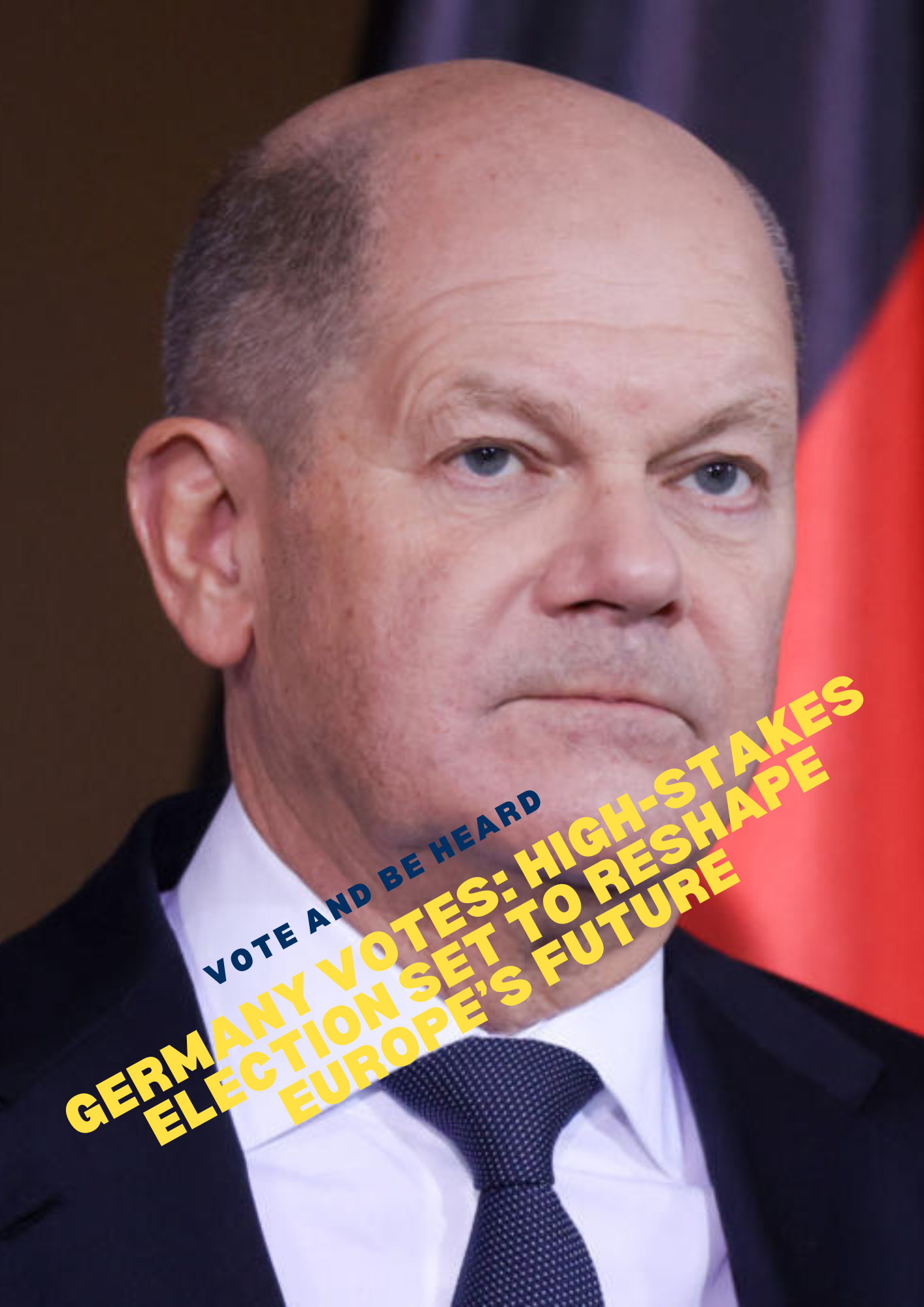Final Campaign Sprint as Germany Heads to the Polls
Germany’s political leaders are making their last-minute appeals to voters ahead of the crucial parliamentary elections on February 23. This election follows the dramatic collapse of Chancellor Olaf Scholz’s coalition government in December, leaving the country in political uncertainty. The race is fiercely contested, with conservative frontrunner Friedrich Merz of the CDU/CSU alliance promising strong leadership in Europe, while the far-right Alternative for Germany (AfD) continues to gain traction. The election outcome will have far-reaching consequences, not just for Germany but for the entire European Union, as the continent watches closely.
Key Election Issues: Economy, Migration, and Security
Germany’s economy, once Europe’s powerhouse, has been struggling to recover from a lingering recession. The previous coalition government collapsed due to budget disputes, and voters are now looking for a leader who can restore financial stability. Migration and security have also taken center stage, following a series of deadly attacks across German cities. The AfD has capitalized on these concerns, gaining support with its hardline stance on immigration. Meanwhile, mainstream parties, including the CDU/CSU and the SPD, are emphasizing economic recovery and stability, hoping to sway undecided voters.
AfD’s Rise and the Far-Right Challenge
The AfD, under the leadership of Alice Weidel, has surged to around 21% in the polls, making it the second-strongest party. Weidel’s populist rhetoric on border security and “remigration” has resonated with nationalist voters, especially on social media, where she leads in engagement. The party has also received controversial support from international figures like billionaire Elon Musk and U.S. Vice President JD Vance, raising concerns of foreign influence. However, all major parties have ruled out forming a coalition with the AfD, potentially limiting its role in governance despite its growing support.
Friedrich Merz’s Conservative Push for Leadership
CDU/CSU candidate Friedrich Merz has presented himself as a strong and experienced leader ready to restore Germany’s political and economic stability. His campaign has focused on positioning Germany as a key player in European politics, distancing himself from the AfD while appealing to conservative voters. Despite leading in the polls with 29%, Merz faces the challenge of forming a stable coalition. His most likely partner is the SPD, though Chancellor Scholz’s unpopularity has hurt the party’s chances. If the SPD manages to rally undecided voters, it could still influence the formation of the next government.
A Complex Electoral System and Uncertain Coalition Talks
Germany’s parliamentary system requires coalition-building, meaning no single party can govern alone. With 630 Bundestag seats up for grabs, the final government formation could take weeks of negotiations. Each voter casts two votes—one for a local candidate and another for a political party—making the final distribution of power unpredictable. If the CDU/CSU wins the most seats, Merz will likely be nominated for chancellor, but he will need an absolute majority in parliament to assume leadership. The SPD, Greens, and FDP could still play kingmakers in the upcoming coalition talks.
Heightened Security Concerns Amid Election Uncertainty
Security has become a major concern as the election approaches, with authorities on high alert following recent violent incidents. A police union spokesman has warned of potential attacks aimed at destabilizing democracy, adding to the tense atmosphere. In Solingen, where a deadly attack occurred last year, protests against the AfD have intensified. Many Germans fear the rise of the far right, with demonstrators holding signs reading “Never Again is Now.” The heightened security measures underscore the deep political divisions shaping this historic election.
The Final Countdown: Will Voters Choose Stability or Change?
With less than 24 hours until the polls open, Germany stands at a crossroads. The outcome will determine not only the country’s next chancellor but also the political direction of Europe’s largest economy. Will voters opt for the stability promised by Merz and the CDU/CSU, or will they shift toward the AfD’s nationalist agenda? The SPD, struggling in third place, hopes to make a last-minute comeback by appealing to undecided voters. One thing is certain—this election will reshape Germany’s political landscape for years to come.



